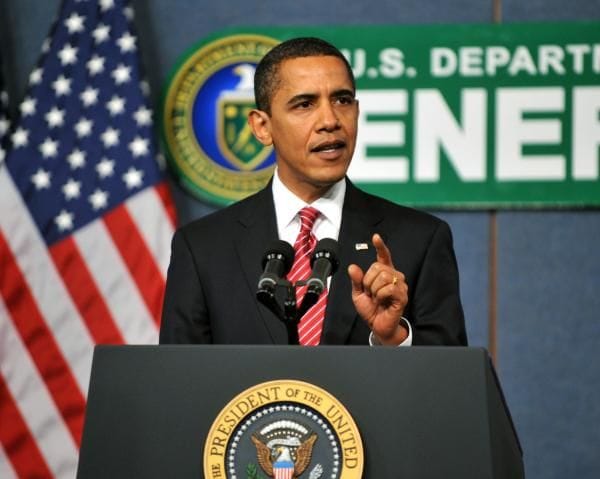Energy Policies Unlikely To Change Under Obama's Second Term


After the re-election of President Barack Obama, national energy policy will likely continue without drastic changes, but questions still loom on the future of energy policy in the United States. Will oil and coal companies be further strained by regulations? Will alternative energy companies have the means to displace reduced production of fossil fuels?
Stricter limitations on greenhouse gas emissions has been a high priority for the Environmental Protection Agency (EPA) and President Obama. Regulations have put the coal industry in a tough spot between production and compliance of federal regulations. Heritage Foundation's energy expert David Kreutzer said, "We'll see the continuation, and perhaps the acceleration, of anti-fossil fuels regulations."
President Obama's job security may give him more inclination to act on his energy policies. The administration is expected to renew renewable energy tax credits but not for fossil fuel producers. Politico reported the swiftness of action:
[The EPA] quickly sent proposed technical changes to its regulation governing mercury and air toxics pollution from power plants to the White House Office of Management and Budget for review the day after Obama won re-election.
Robert Murray, CEO of Murray Energy Corporation, announced a layoff of 160 workers in immediate reaction to the president's re-election. Murray responded with a 'prayer' where, in part, he said:
We are a Country in favor of redistribution, national weakness and reduced standard of living and lower and lower levels of personal freedom.
The Center for American Progress Fund estimates that $270 million was spent on the behalf of fossil fuel groups during the course of the election season. Murray Energy Corp. has put forward $1.4 million to Republican candidates since 2007.
The crude oil industry is anticipating President Obama's approval of the Keystone XL pipeline project. TransCanada, the administrator of the project, will build the pipeline from Alberta to the Gulf Coast. The pipeline is expected to flow 830,000 barrels of oil a day directly to the United States. Dan Kammen, an energy advisor to President Obama, stated:
It’s important for the U.S. government to look at the science behind the project and evaluate all the alternatives to enable a sustainable, low-carbon economy by 2050 and beyond.
President Obama's energy policies are not a complete win for environmentalists. Environmental activists from 350.org are scheduled to have a demonstration in Washington on November 18 to oppose the Keystone XL pipeline project. The Keystone XL pipeline is estimated to cost $5.3 to $7.6 billion.


